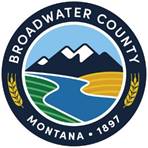Understanding And Navigating Local Government In Broadwater County
Author: Broadwater County Commissioners
Understanding And Navigating Local Government in Broadwater County
Broadwater County Commissioners
City and county governments are the closest and most accessible governments to the people. Residents have more access to local officials than at any other level of government, but public knowledge of the organization and role of the various officials and departments is often misunderstood.
Broadwater County, Montana, operates within a decentralized framework of local government defined by state law and shaped by local necessity. This system distributes authority across multiple elected offices, each with independent duties, while central coordination and policy-setting rest with the elected Board of County Commissioners. The structure follows guidelines set forth in the Montana Code Annotated (MCA), and Broadwater County reflects a practical adaptation of those laws to its rural context.
The Board of County Commissioners, consisting of three members elected to staggered six-year terms, serves as the administrative and fiscal authority for the county. Their powers and responsibilities are defined under MCA 7-5-2101, including adopting budgets, levying taxes, managing county property, and approving infrastructure projects. They also serve in a quasi-judicial capacity in land use and zoning matters under MCA 76-2-205.
Notably, commissioners do not oversee or direct the elected officials heading other departments. Their influence is primarily exercised through budgetary oversight, strategic planning, and coordination of countywide efforts. Public meetings are held regularly in compliance with Montana’s open meetings law as defined in MCA 2-3-201, ensuring transparency and opportunities for public input. Notice for meetings follows MCA 2-3-103.
Besides the Commissioners, Broadwater County’s elected officials include the Sheriff, C7-5-2101, County Attorney, Clerk and Recorder, Treasurer/Superintendent of Schools, Clerk of District Court, and Justice of the Peace. Each position is empowered by state statute and operates independently of the Commissioners in daily decision-making and departmental operations.
This structure stands in stark contrast to private business models, where a single executive or board typically directs all departments. In county government, elected officials operate independently by design, each accountable directly to the voters rather than to a central administrator. This system is designed to provide greater transparency, decentralized power, and prevent undue influence that can happen when control is consolidated in a single office or individual.
There is some room under the MCA guidelines for differences in county organization and operations, and each of Montana’s 56 counties uses a structure within state law that works for its specific needs. For instance, in Broadwater County, the Clerk and Recorder, whose statutory duties are outlined in MCA 7-4-2611, serves a multifaceted role. In addition to maintaining official records, land transactions, and minutes of commissioner meetings, this office also serves as the County Elections Administrator per MCA 13-1-301 and fulfills the duties of the County Surveyor as permitted under MCA 7-4-2812, which allows counties to combine duties when practical.
The Treasurer, per MCA 7-6-2111 and 7-6-612, is responsible for the custody, disbursement, and investment of county funds and tax collection. In Broadwater County, the Treasurer also serves as the County Superintendent of Schools under MCA 20-3-205, an arrangement allowed when a county has only one school district, as is the case with the Townsend K-12 district in Broadwater County. However, residents in the area south of the 101 Road fall under the jurisdiction of the J24 district, which, for school purposes, is shared with neighboring Gallatin County. In such cases, the Broadwater County Superintendent coordinates with the lead county as needed, still fulfilling responsibilities under MCA Title 20, Chapter 3.
This separation of powers, grounded in statute but tailored to Broadwater County’s needs, supports a stable and accountable form of governance. With clearly defined duties and carefully balanced autonomy, the county structure ensures that each official can focus on their core responsibilities while contributing to the overall functioning of local government.
Article Images
Click on Image Thumbnail(s) to view fullsize image
PhotoCredit: Broadwater County
Image 1 Caption: Logo
